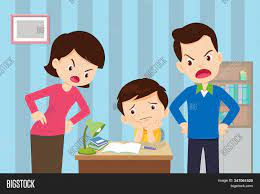


New research indicates that young children who routinely get harsh discipline from their parents are substantially more likely to have long-lasting mental health problems.
Children exposed to “hostile” parenting at age three were 1.5 times more likely than their peers to have mental health symptoms that fulfilled the standards for “high risk” by age nine than their peers, according to researchers from the Universities of Cambridge and Dublin. In the study, there were almost 7,500 kids from Ireland. Hostile parenting can occasionally involve harsh punishment, which can be either psychological or physical. For instance, depending on the parent’s attitude, it may involve yelling at kids all the time, consistent physical punishment, isolating kids when they disobey, undermining their self-esteem, or punishing them arbitrarily.
The researchers noted the signs of children’s mental health at ages three, five, and nine. They examined both internalised (such anxiety and social withdrawal) and externalised (like impulsive and violent behaviour, and hyperactivity) symptoms of mental illness.
It was discovered that 10% of the children had a significant risk of mental illness. Children in this group had a far higher likelihood of experiencing violent parenting.
It’s important to note that the study makes it apparent that parenting practises do not entirely predict mental health outcomes. Multiple risk variables, such as gender, physical health, and socioeconomic status, have an impact on children’s mental health.